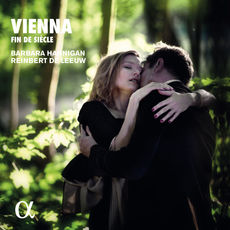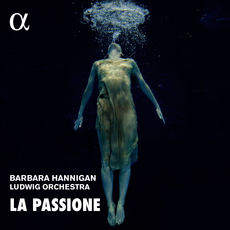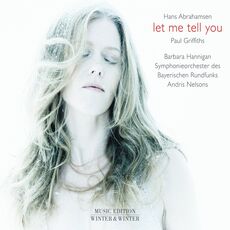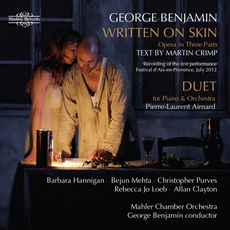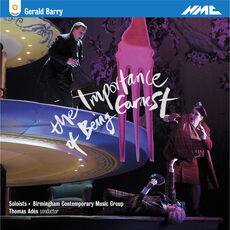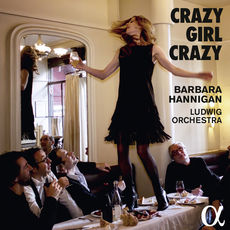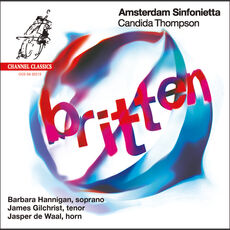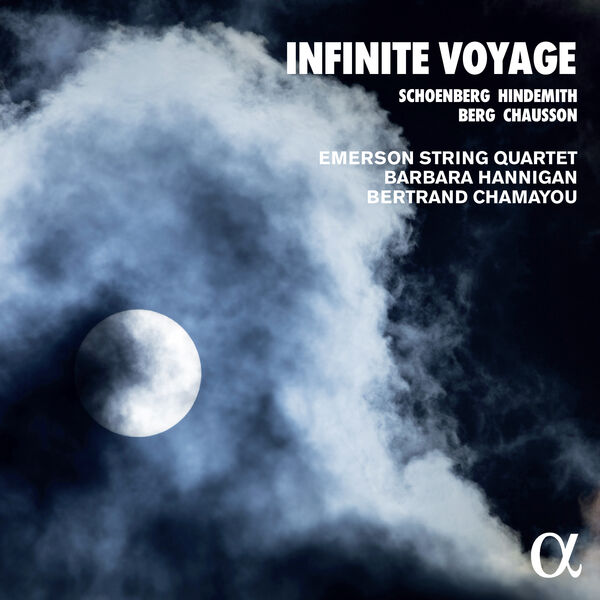It’s in Brittany, in the distant countryside of Trégor, on the outskirts of Plestin-les-Grèves, that Barbara Hannigan settled into in 2021, shortly following Covid. We show up at her doorstep a bit intimidated. It must be said that her exploits are numerous: first roles at Glyndebourne, Aix-en-Provence, or La Fenice, international prizes, creations and collaborations all over the world…but the Canadian soprano and conductor welcomes us with disarming curiosity and spontaneity. She wants to know if we’re from the area, if we play an instrument, where our English accents come from, if we’re allergic to cats…”I have three that hang around here, but they’re shy around strangers.” Meanwhile, we sit on the terrace, having coffee and chocolate. This was the beginning of what ended up feeling more like a conversation between friends than an interview.
We first turn to the release of Infinite Voyage, a record-event released on September 8, 2023, in collaboration with the legendary Emerson String Quartet. Dedicated to the repertoire of the Second Viennese School, with a few nods to Paul Hindemith and Ernest Chausson, the album is born of a long history of friendship between the soprano and the quartet. A friendship further bonded around Schönberg’s “String Quartet No.2, Op. 10″, whose score brings in the soprano during the last two movements: “It goes back to 2013 or 2014. The Emerson Quartet contacted me with the idea for us to work together on the piece. Emerson are legends, it was a huge honor for me to be sought out by them, I remember nearly having to hold back from screaming over the phone!” A collaboration defined by complicity from the very first rehearsals. “I felt like I was with a group of old friends – we joked around, we could always offer each other constructive criticism without it bothering any of us. We worked a lot, but we had so much fun!” A program they’re offering everywhere: New York, Berlin, Vienna, Switzerland. “I ended up saying: guys, we HAVE TO make a record of this.”
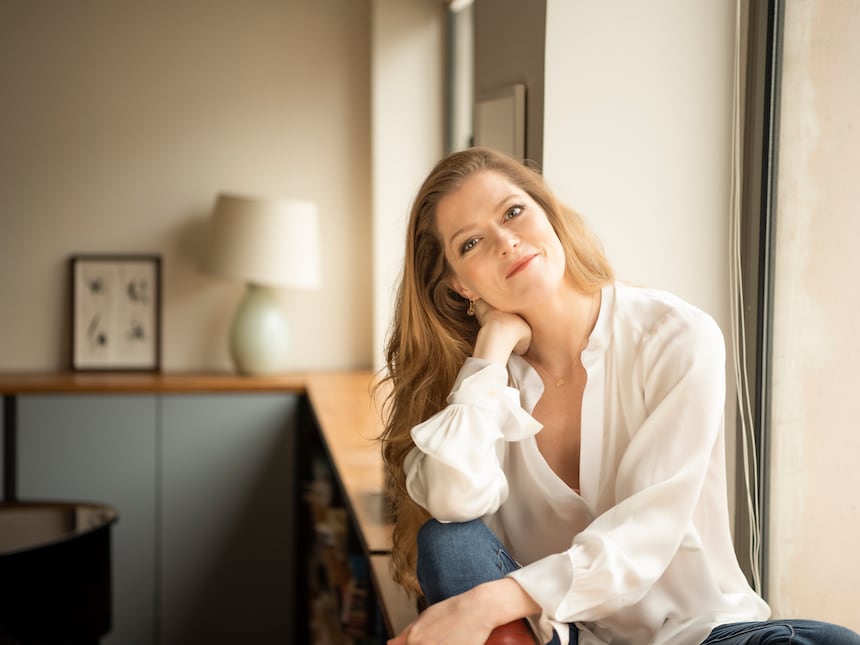
Infinite Voyage marks the Emerson Quartet’s emotional farewell to recording – they announced their retirement from the stage next October, after a 47-year-long career. Any extra pressure on Hannigan during recording? “Of course! I wanted to do them justice, so that they could celebrate their departure in all its glory! What I remember from the recording sessions more than anything else, though, is the friendship, love and respect that unite us.” Strong ties, immortalized on screen by Barbara’s partner, director and actor Mathieu Amalric, who filmed their session work in the studio, resulting in a 70-minute-long documentary. The film will be shown October 7, 2023 in Paris at the quartet’s farewell concert.
A Turning Point for Schönberg
Hannigan confesses to having an undying passion for Schönberg’s second quartet: “I’d sung it a number of times, well before meeting the Emerson Quartet. With the Arditti, JACK, and Diotima quartets, sometimes even with colleagues that I brought together for the occasion. It’s a piece that I find fascinating, unsettling. It’s also a turning point where Schönberg takes a break from tonal harmony, during a very painful time in his life, when Mathilde Zemlinsky left him to be with painter Richard Gerstl. I think this event was a catalyst for his creativity, because he wrote the last two movements very quickly.” This helps make sense of the riots caused by the work at the time of its creation in 1908. “Well, ‘riots’ of classical music traditionalists!”, Hannigan clarifies, half-joking.
'Infinite Voyage' by Emerson String Quartet, Barbara Hannigan & Bertrand Chamayou
Alpha ClassicsThe Canadian soprano’s predilection for Schönberg can be better situated in the larger context of her career on stage and in the studio, in which she’s carved out a special place for 20th-century music, and, more specifically, for the Second Viennese School. A liking that can be attributed to the stimulating technical challenges characteristic of serial and twelve-tone music. And with good reason, since we know the coloratura to be capable of rising to any vocal challenge. “Of course, this repertoire can be technically difficult, but what interests me most of all is the notion of decadence. I’m referring to the etymological meaning of the word: in English, there’s a common root with ‘decay,’ and, for something to decay, it has to have flowered first! I find this fascinating, this tightrope, this turning point where the tree has flowered and flowered and flowered, until it begins to perish. It’s an important reflection on the notion of goodbye: the Schönberg quartet is an aesthetic goodbye to tonal harmony, and this album is also a goodbye album for the Emerson Quartet!”
A very dramatic, almost theatrical vision of musical gesture that we suspect to feed off of the numerous operatic heroines that the singer has incarnated on stage: Lulu in the opera of the same name, Agnes in Written on Skin, Isabel in Lessons in Love and Violence, “Elle” in La Voix Humaine…roles that are often dark and tortured, the opposite of the singer’s sunny personality. What dark secrets are you hiding, then, Barbara Hannigan? She laughs: “I’d have to talk to my therapist about that! Honestly, I have no idea. Actually, I think that I love dying on stage, I loved throwing myself off the balcony in Written on Skin!” She laughs, again and again. “In all seriousness, I think that we all go through personal struggles: the loss of a loved one, a break-up, what have you. Music has almost a sacred power, a cathartic power to heal. And even the most tough or violent pieces, I find great joy in working on them. And I try to bring some light to them. In my own production of La Voix Humaine, I added a few touches of humor, a few jokes!”, she tells us, vibrantly, with grand hand gestures.
A Conductor Without Her Baton
Movements that evoke conducting an orchestra, another facet of her career that has become increasingly more important in recent years. Recordings of her concerts, which she almost always conducts without a baton, are a testament to her full-body engagement, her way of reworking a singer’s use of breath into instrumental interpretation: “In looking more closely, you notice that most composers write with a ‘sung’ vision of the music. It’s enough to observe the indications on a score: cantare, cantabile.” Her experience as a singer makes her a well-appreciated guest teacher in masterclasses for students who play instruments, especially percussionists, for whom learning to make their instruments sing is a true challenge.
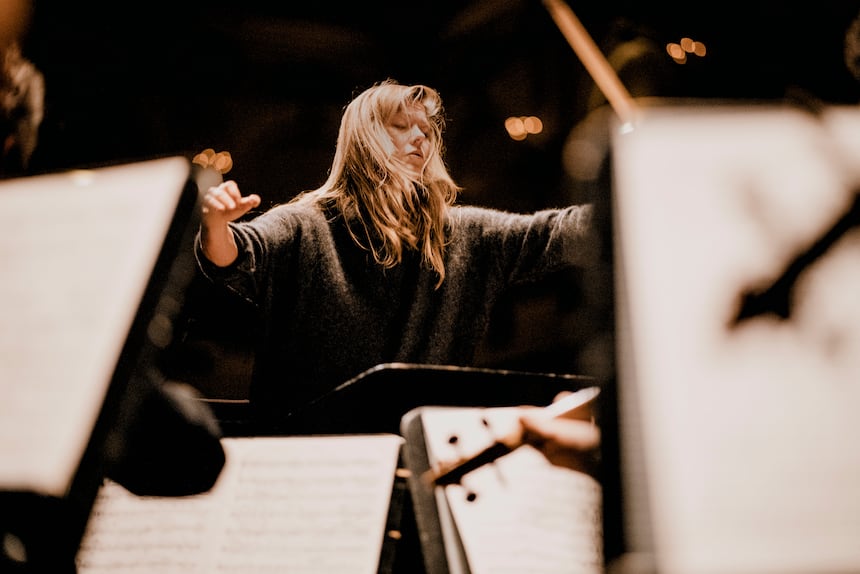
Yet conducting an orchestra wasn’t something she took to easily. “I wasn’t particularly interested in becoming a conductor. It was my colleagues who are producers, musicians, or conductors who told me to give it a try, because they felt like I had it in me.” Her first “official” step onto the podium took place in 2011, during the Festival Présences at the Châtelet Theater in Paris. “I didn’t think that it would cause my career to change course, but, one thing led to another, and people called me to conduct this orchestra or that piece…at the beginning, singing made up 80% of my career, and conducting 20%. Now, it’s been inversed!”
An inversion that the Canadian is at peace with: “I still have total freedom to choose my projects. If, next season, I only want to sing, I can.” These two hats seem to fit her perfectly: “Better yet, it’s considerably expanded my approach to singing! I was scared of aging for so long, vocally speaking, because there is this ingrained idea that us singers have an expiration date. Of course, I won’t be able to sing certain roles or scores forever, but that doesn’t mean I can’t use my voice forever. I can explore other repertoires, other styles!” Hannigan has also been multiplying her collaborations with musicians from other universes, as she’s currently doing with New York jazz musician John Zorn, working on a Parisian creation for next fall.
A Voice for the Ages
It’s certainly in contemporary creations that the soprano seems to thrive. To date, she has nearly a hundred world premieres to her name. In 2019, British newspaper The Guardian compiled a list of the 25 best classical music works of the 21st century and, unsurprisingly, Hannigan participated in a great number of them: Let Me Tell You by Hans Abrahamsen, Written on Skin by George Benjamin, Passion by Pascal Dusapin…”I’m very proud to have worked on these projects, but I decided to not play some of them anymore. It’s very important for new generations to take over and propose their own interpretations. I can’t be the only one to sing them, otherwise, it would be repertoire that would be at risk of dying out. For Let Me Tell You, for example, I sent the editor a list of five or six sopranos I thought would be perfect for the role!”
A laureate of numerous awards, Hannigan was named artist of the year in 2022 at the Gramophone Awards, and was just selected as one of the 20 best sopranos of all time by Classic FM. Honors that she welcomes with humility. “People talk a lot about artists’ egos, but I think that most of them are humble. You obviously have to have a certain amount of self-confidence in order to get on stage and tell the audience: I’m going to sing or play this piece, and it’s worth it for you to stay and listen. But as we say in the business: ‘You’re only as good as your last concert.’ And if your last concert was bad, you have to work even harder. Most of us spend a lot of time studying and practicing.”
Barbara HANNIGAN interprète Gershwin
France TélévisionsHighly personable, Barbara Hannigan nearly seems disappointed when we tell her the interview is coming to an end. So we stretch it out a bit, just to continue enjoying our chat. We actually did have one last question in mind, but would it bother her? “Oh, I know what you’re going to ask me! Something about being a female orchestra conductor, am I right?”, she teases, mischievously anticipating the journalistic tics she’s likely suffered through countless times. But while we’re on the topic, let’s formulate it properly: from the reign of the politically correct and cancel culture in productions, to the worthy denunciations of sexual abuse and sexism in the music industry, how does one keep a freedom of tone and creativity, far from any reductive dogmas? “Honestly, I don’t have a clear answer, given it’s such a vast subject. There are a lot of changes in the way things are done now, and I think that’s a good thing. But I recently read a fascinating article about the death of nuance in our society. Now, people say: it’s either black, or it’s white. Yet nuance is important, it’s healthy. In any situation, we have to make sure to take the time to be discerning, to understand sub-texts. Throughout my career, questions have always been more interesting to me than clear-cut answers. I love mystery.” We head off on these words, full of calm wisdom, only regretting not having been able to meet her cats: “They tend to stay away when people talk about Schönberg!”
